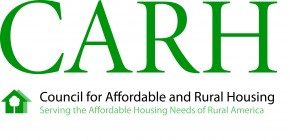- November 2022
- October 2022
- September 2022
- August 2022
- July 2022
- June 2022
- May 2022
- April 2022
- March 2022
- February 2022
- January 2022
- December 2021
- November 2021
- October 2021
- September 2021
- August 2021
- July 2021
- June 2021
- May 2021
- April 2021
- March 2021
- February 2021
- January 2021
- December 2020
- November 2020
- October 2020
- September 2020
- August 2020
- July 2020
- June 2020
- May 2020
- April 2020
- March 2020
- February 2020
- January 2020
- December 2019
- November 2019
- October 2019
- September 2019
- August 2019
- July 2019
- June 2019
- May 2019
- April 2019
- March 2019
- February 2019
- January 2019
- December 2018
- November 2018
- October 2018
- September 2018
- August 2018
- July 2018
- June 2018
- May 2018
- April 2018
- March 2018
- February 2018
- January 2018
- December 2017
- November 2017
- October 2017
- September 2017
- August 2017
- July 2017
- June 2017
- May 2017
- April 2017
- March 2017
- February 2017
- January 2017
- December 2016
- November 2016
- October 2016
- September 2016
- August 2016
- July 2016
- June 2016
- May 2016
- April 2016
- March 2016
- February 2016
- January 2016
- December 2015
- November 2015
- October 2015
- September 2015
- August 2015
- July 2015
- June 2015
- May 2015
- April 2015
- March 2015
- February 2015
- January 2015
- December 2014
- November 2014
- October 2014
- September 2014
- August 2014
- July 2014
- June 2014
- May 2014
- April 2014
- March 2014
- February 2014
- January 2014
Rural Development COVID-19 Multifamily Stakeholder Update of FAQs
The following information from Nancie-Ann Bodell, Deputy Administrator, Multi-family Housing, was distributed by Rural Development on July 20, 2020.
Thank you for your continued work in maintaining quality housing for your residents during this ongoing pandemic. As some key deadlines in the CARES Act are approaching, we wanted to provide a few updated questions and answers to clarify how Rural Development Multifamily Housing programs will be impacted by the expiration of certain CARES Act provisions.
To review our previously posted Multifamily Housing (MFH) questions and answers on Covid-19, please visit the Rural Development COVID-19 Response website – https://www.rd.usda.gov/coronavirus
Q1: The CARES Act prohibited late fees and evictions for USDA’s Multifamily Housing tenants for 120 days, expiring July 25. What happens now?
A: The CARES Act was enacted on March 27, 2020 and contained a prohibition on both nonpayment evictions and late fees for 120 days. This prohibition applies to all Rural Development MFH programs, including Section 514, Section 515 and Section 538 loans, as well as Multifamily voucher holders.
This prohibition on late fees remains in place for the period covered by the CARES Act, meaning that if a resident has unpaid rent on August 1, retroactive late fees may not be assessed. Late fees may only be charged going forward. We encourage MFH owners and agents to work with tenants wherever possible to assist them in maintaining housing, including processing interim certifications if possible or arranging payment plans for past-due balances.
In addition, while the national prohibition on nonpayment evictions will lift July 25, many state and local governments have ongoing restrictions. Owners and agents must closely follow any applicable local guidance in this matter.
As a reminder, properties under a forbearance/deferral agreement are prohibited from nonpayment evictions through the life of the deferral. For example, if a property requests a deferral for June, July, and August, no nonpayment evictions would be permitted until September 1.
Q2: Is USDA still accepting deferral requests in USDA’s Multifamily Housing Programs?
A: The 2020 CARES Act allows Multifamily borrowers experiencing a financial hardship related to COVID–19 to request forbearance for up to 90 days. Guidance on how to request this forbearance/deferral was distributed on April 2, 2020, and we encourage you to contact your Servicing Official with questions.
MFH has processed over 4,000 deferral requests for its 514 and 515 programs.
Forbearance/deferral requests are still being accepted for properties experiencing financial hardship due to COVID-19 that have not yet requested a forbearance. Requests will be accepted as long as the National Emergency is in place or through December 31, 2020. As a condition of a deferral, owners and management agents must not evict tenants for nonpayment of rent through the deferral period.
Q3: How can USDA Multifamily Housing owners and management agents assist tenants who experience an ongoing reduction in income due to COVID-19?
A: For tenants receiving Rental Assistance, an interim recertification should be completed as quickly as possible for any changes in monthly income. Tenants who completed a previous interim recertification may need to complete a second interim certification, for example if their unemployment benefits change or if a partial layoff becomes permanent. We encourage agents to be accurate but flexible, including receiving information by phone or email, and making accommodations when income changes can’t be verified due to business closures.
Given the high number of potential zero-income certifications, we have suspended Handbook 2-3560 Attachment 6-B used to verify living expenses for zero income interim recertifications. Tenants who have been laid off due to COVID-19 do not qualify for income annualization as mentioned in Handbook 2-3560 Chapter 6 Section 6.9 (4), as this emergency is not a seasonal or predictable layoff. Rent should be calculated based on current income.
We continue to appreciate your partnership through this challenging time. Please do not hesitate to reach out to your local RD staff if you have additional questions.





